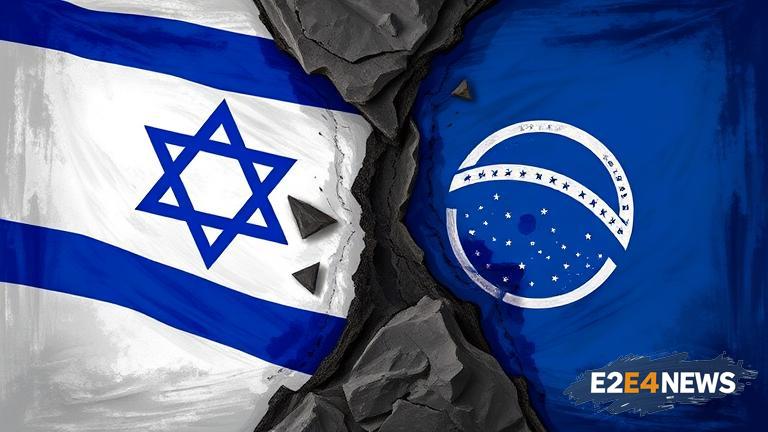The relationship between Israel and Brazil has reached a new low, with President Lula’s administration adopting a more confrontational approach towards the Jewish state. This shift in policy has been met with concern from Israeli officials, who fear that the deterioration of ties could have far-reaching consequences. The strained relations between the two nations have been evident in recent months, with Brazil’s government taking a more vocal stance on issues such as the Israeli-Palestinian conflict. President Lula has been a long-time critic of Israeli policies, and his administration has made it clear that it will not shy away from speaking out against what it sees as injustices. The Brazilian government has also been a strong supporter of the Palestinian cause, and has consistently voted in favor of pro-Palestinian resolutions at the United Nations. Israel, on the other hand, has expressed disappointment and frustration with Brazil’s stance, arguing that it is unfair and unbalanced. The Israeli government has also accused Brazil of harboring anti-Israeli sentiments, and has called on the Brazilian government to take a more nuanced approach to the conflict. Despite efforts to improve relations, the situation continues to deteriorate, with both sides digging in their heels. The diplomatic downturn has significant implications for trade and economic cooperation between the two nations, with Israeli businesses expressing concern over the potential loss of markets and investments. The Brazilian government has also faced criticism from its own citizens, with some arguing that the country’s stance on Israel is overly simplistic and fails to take into account the complexities of the conflict. Meanwhile, the Israeli government has been seeking to strengthen ties with other countries in the region, including Argentina and Chile. However, the diplomatic rift with Brazil is likely to have a lasting impact on Israel’s relations with Latin America as a whole. The situation is also being closely watched by the international community, with many countries calling for calm and restraint. The United States, in particular, has expressed concern over the deteriorating relations between Israel and Brazil, and has urged both sides to engage in dialogue and diplomacy. As the situation continues to unfold, it remains to be seen whether the two nations will be able to find common ground and repair their strained relations. The Israeli government has made it clear that it is willing to engage in talks, but only if Brazil is willing to adopt a more balanced approach to the conflict. For now, the diplomatic downturn between Israel and Brazil shows no signs of abating, with both sides seemingly entrenched in their positions. The consequences of this rift are likely to be far-reaching, with implications for trade, security, and regional stability. As the international community continues to watch the situation with bated breath, one thing is clear: the relationship between Israel and Brazil is at a crossroads, and the path forward is uncertain. The coming months will be crucial in determining the future of bilateral relations, and it remains to be seen whether the two nations will be able to find a way out of the current impasse. In the meantime, the diplomatic community will be closely watching the situation, hoping that calm heads will prevail and that a resolution can be found. The stakes are high, and the consequences of failure could be severe. Only time will tell if Israel and Brazil will be able to repair their strained relations and find a way forward.
